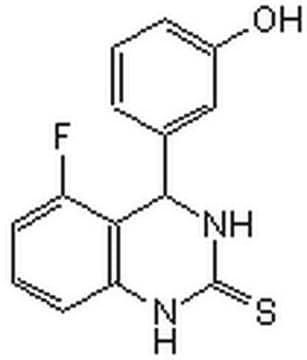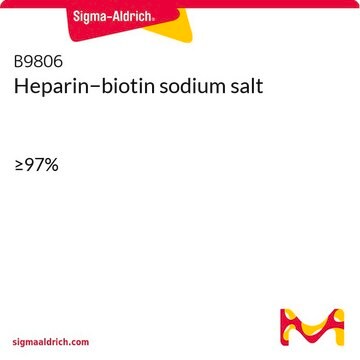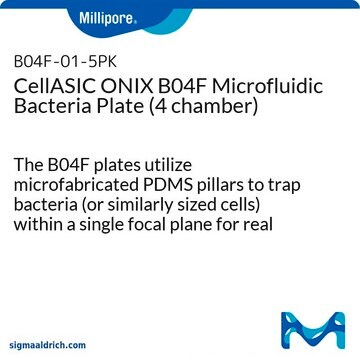324622
Eg5 Inhibitor III, Dimethylenastron
The Eg5 Inhibitor III, Dimethylenastron, also referenced under CAS 863774-58-7, controls the biological activity of Eg5. This small molecule/inhibitor is primarily used for Membrane applications.
Synonym(s):
Eg5 Inhibitor III, Dimethylenastron, 7,7-Dimethyl-4-(3-hydroxyphenyl)-5-oxo-3,4,5,6,7,8-hexahydroquinazolin-2(1H)-thione
About This Item
Recommended Products
Quality Level
Assay
≥95% (HPLC)
form
solid
manufacturer/tradename
Calbiochem®
storage condition
OK to freeze
protect from light
color
white to light yellow
solubility
DMSO: 10 mg/mL
methanol: 5 mg/mL
shipped in
ambient
storage temp.
2-8°C
SMILES string
S=C1NC(C3=C(N1)CC(CC3=O)(C)C)c2cc(ccc2)O
InChI
1S/C16H18N2O2S/c1-16(2)7-11-13(12(20)8-16)14(18-15(21)17-11)9-4-3-5-10(19)6-9/h3-6,14,19H,7-8H2,1-2H3,(H2,17,18,21)
InChI key
RUOOPLOUUAYNPY-UHFFFAOYSA-N
General description
Biochem/physiol Actions
Microtubule-stimulated ATPase activity of the mitotic motor
Packaging
Warning
Reconstitution
Other Notes
Gartner, M., et al. 2005. Chembiochem6, 1173.
Legal Information
Storage Class Code
11 - Combustible Solids
WGK
WGK 3
Flash Point(F)
Not applicable
Flash Point(C)
Not applicable
Certificates of Analysis (COA)
Search for Certificates of Analysis (COA) by entering the products Lot/Batch Number. Lot and Batch Numbers can be found on a product’s label following the words ‘Lot’ or ‘Batch’.
Already Own This Product?
Find documentation for the products that you have recently purchased in the Document Library.
Our team of scientists has experience in all areas of research including Life Science, Material Science, Chemical Synthesis, Chromatography, Analytical and many others.
Contact Technical Service








